The Downfall of Kai: Where The Hatchet Wielding Hitchhiker Took a Hell of a Turn

This story contains mentions of sexual violence and abuse.
Stop us if you've heard this one: Social media crowns a new hero, ensuring ubiquity for however long the Internet's collective attention span holds... only to be tremendously let down because the person once lionized is not who they thought.
Cue the reckoning.
The Netflix documentary The Hatchet Wielding Hitchhiker tells such a cautionary tale. Though the story of Caleb Lawrence McGillivary, aka Kai, the self-described "home-free" nomad who infiltrated the zeitgeist for a few weeks in 2013 after a random act of heroism (or was it...), isn't just about a guy who went viral overnight and ultimately proved unable to handle the attention.
Actually, Kai handled his fame the way he approached everything else—appearing to not give AF. Combined with his surfer-dude demeanor, musical talent and Robin Hood-style altruism (he'd shoplift a cartful of goods and give it all away), his was a way of life that inevitably attracts admirers. Mostly from a safe distance via likes on YouTube, but also from youngsters who'd flock to him once their phones had pinged with Kai's location status, be it a local club or the public library.
TV's Most Killer True Crime Transformations
Only hindsight is 20/20, of course, as the journalist who basically discovered Kai and the handful of people who sensed there was something off (but also thought he was prime late-night talk show and reality-TV material) admit in the doc.
But even after the story of Kai's 15 minutes and their shocking aftermath has been told, like with any good moral quandary, uncertainty remains whether what happened was inevitable or if his brush with notoriety spiraled into something worse.
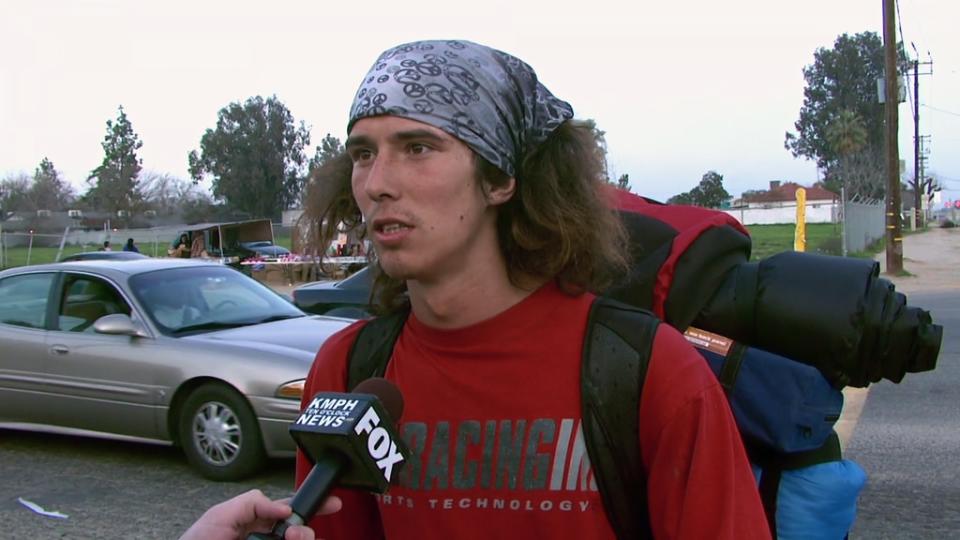
How did Kai become the "Hatchet Wielding Hitchhiker"?
It all started in Fresno, Calif.
On Feb. 1, 2013, Jett McBride steered his car right into PG&E worker Rayshawn Neely, pinning him against his own truck. Bystanders rushed toward the scene, and when Tonya Baker tried to assist Neely, McBride—calling himself Jesus Christ and yelling racist slurs, according to witness accounts—started attacking her and Neely, a Black man.
"The exact words he used were 'All the [expletive] have to go, have to die now,'" Baker testified about McBride during a Feb. 22 pretrial hearing.
Out of the back of McBride's car and into the melee jumped a lanky guy wearing a backpack, his long curly hair held back from his face with a bandanna. In his hand was a hatchet, which he used to hit McBride three times, putting an end to the fight, after which police showed up and arrested McBride.
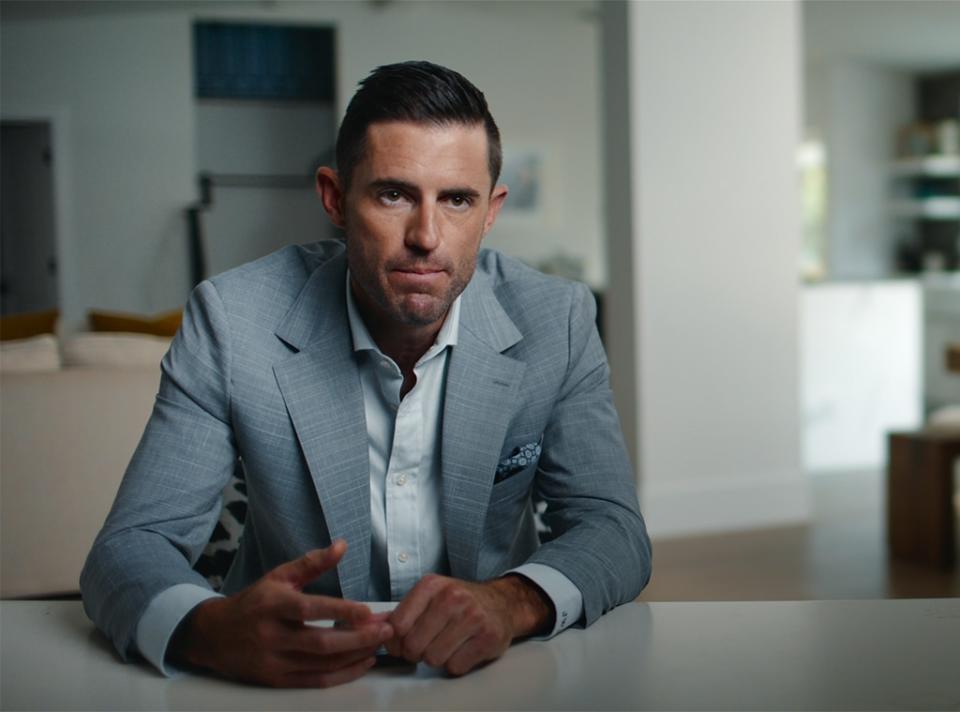
"Not to stereotype, but he looked like a homeless hitchhiker," Jessob Reisbeck, the reporter who interviewed the unlikely hero for Fresno's Fox 26 News, recalled in The Hatchet Wielding Hitchhiker. Normally on the sports desk, Reisbeck was just lending a hand to the shorthanded news team that day when he got the scoop of his life.
The fellow said his name was Kai. Asked if he had a last name, he replied with a smile, "No, bro, I don't have anything." His reply to how old he was: "[Shrug] I can't call it."
The Bombshell Moments From Casey Anthony: Where the Truth Lies
In recounting what happened, Kai told Reisbeck, "Before I say anything else, I wanna say, no matter what you've done, you deserve respect. Even if you make mistakes, you're lovable, and it doesn't matter your looks, skills, or age, size, or anything, you're worthwhile. No one can ever take that away from you."
But when he saw the driver of the car he'd hitched a ride with wailing on that woman, "I f--king ran up behind him with a hatchet. [Miming swings] Smash, smash, suh-mash!" Twice with the blunt end, and once with the blade, as a detective later detailed.
Kai reasoned, "If I hadn't have done that he would have killed more people."
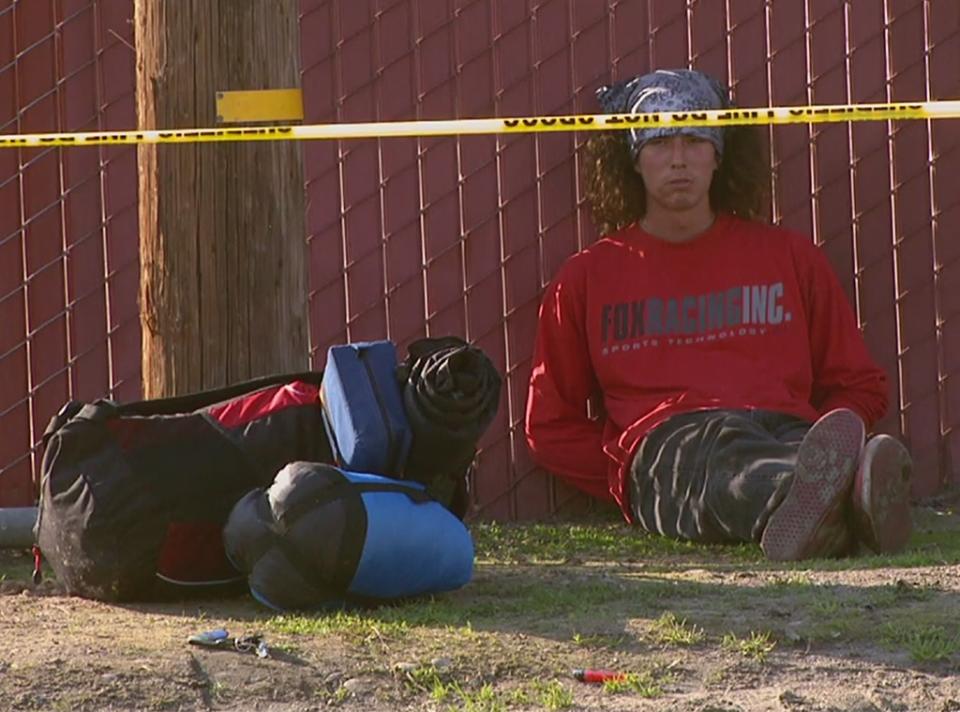
The package aired on the news that night, a quirky local story—but after Reisbeck uploaded the entire six-minute interview to YouTube, a star was born.
Long story short, everyone wanted a piece of Kai, which Reisbeck knew because he was the only one with his email address, so everyone was reaching out to him hoping to get in touch.
Instead, Reisbeck headed to Stockton—a two-hour-plus drive from Fresno—to interview Kai, the 24-year-old amiably introducing the crew to his similarly unhoused pals, showing off his singer-songwriter skills and amiably answering questions with a combination of rambling tangents and disturbing anecdotes.
Murdaugh Murders: A Southern Scandal Trailer Dives Deep Into a Notorious True Crime Fascination
At one point the journalist compared him to Batman, only without the signal, to which Kai added, "And I'm not a filthy rich, spoiled f--k who looks down on everyone."
In the Netflix doc, Alex Aguirre, the cameraman who was with Reisbeck, called Kai a "loose cannon" with a "weird energy around him" that made it impossible to know what he was going to do next.
How did Kai the viral hitchhiker end up on Jimmy Kimmel Live?
But with Stephen Colbert already having made his share of hatchet-wielding hitchhiker quips on The Colbert Report, Jimmy Kimmel Live wanted Kai in person.
And after getting kicked out of Hollywood's Roosevelt Hotel for skateboarding in the lobby and peeing on the sign in front of Jimmy Kimmel's studio, Kai made his debut on the show on Feb. 11, 2013, in a hitchhiking skit, after which the host gifted him a surf board and wetsuit. (Kimmel also gave Kai $500, which he promptly gave to a security guard and apologized for peeing outside.)

Kimmel also bantered with Reisbeck, who was in the audience, during his monologue, asking what was going through his head as he started interviewing Kai.
"To keep him talking, for one," the reporter said. "'Cause he was spitting out pure gold, as you can tell."
When Kimmel cracked whether, at this point, he would just retire from journalism, Reisbeck volleyed back, "Is that an offer?"
From the outside, Kai's appearance was an infectious success, so the JKL team asked him to come back the next day for a bit called "Kai's' Korner Movie Review."
But as Brad Mulcahy, the show's human interest producer, recalled in the Netflix doc, it was impossible to get Kai to focus.
The Price of Glee: 6 Tragic Takeaways and Biggest Bombshells
What happened to Jett McBride, the guy Kai smashed with his hatchet?
Before showtime on Feb. 11, L.A. Sheriff's deputies had showed up at the El Capitan Entertainment Centre, where JKL is taped, and briefly detained Kai on behalf of Fresno police, who had been looking for him in order to get his statement about the attack on Feb. 1. They dropped him back off 30 minutes before the taping.
Though Kai ultimately wasn't available to testify in person at McBride's month-long trial (more on that later), prior comments he made about the incident were allowed into evidence.
"I could see he was going to grab her and I grabbed the tomahawk from inside that bag," Kai testified during the Feb. 22 hearing (after the court finally got him to raise his right hand instead of his left when being sworn in), recalling what he saw McBride doing to Baker after he hit Neely with his car. "I looked at him and I says, 'Get the f--k away from her.'"
In January 2014, McBride was found not guilty of attempted murder, but was convicted of two counts of assault with a deadly weapon, for hitting both Neely and another PG&E worker, with enhancements of using a car as a weapon and causing serious injury.
Craziest True Crime TV Moments
A jury subsequently determined, however, that McBride was not of sound mind when he committed those crimes.
The Netflix doc notes that he was sentenced to nine years in a mental health facility, but his defense attorney Scott Baly told MovieMaker after the film premiered that his client was actually remanded to Atascadero State Hospital, where he ultimately served four or five years. McBride is currently a free man, according to Baly.
Three weeks after going viral, Kai was back in Fresno to perform at a club when he allegedly told musician Gabriel Francisco and others that he had slipped McBride a laced joint, soon after which the driver freaked out and attacked Neely. But a toxicology report found nothing but marijuana in McBride's system.
"Anything's possible," Baly said of Kai's claim about slipping McBride drugs. "The trouble is, anything he says is just unreliable."

Was Kai a victim of assault and abuse?
Falling through the cracks at the time were comments Kai made—on camera—to Reisbeck and others about violent encounters, as well as disturbing Facebook posts (seen in the documentary) that seemed to indicate his personal knowledge of child abuse.
"This one time I was in an orchard and this f--king guy started beating on a woman," Kai recalled in the original Fresno interview, and his response was to start "smashing him in the head."
He also said at the time that he didn't have any family, that "as far as anyone I grew up with is concerned, I'm already dead."
Talking to Reisbeck in Stockton, Kai alleged that he'd been attacked and raped by a man when he was 17. And, Kai said, when he was a kid he was locked in a cage for four years.
In the documentary, his mother, Shirley, says there was a "short period" when she took measures to stop Caleb (her son's actual name) from getting up too early so he wouldn't "get into stuff that could harm him" when he was very young. She doesn't specify what she did, but says she "never locked him in a room."
Shirley (who did not want her last name used in the doc or in media reports regarding her son) spoke from Canada, where Kai was born—as opposed to West Virginia, where Kai once told Reisbeck he was from.
True Crime: Kidnapping Survivors
A cousin, Jeremy McGillivary Wolfe, said in the doc that he remembered Caleb not being allowed to go out to play, as he was, and having to stay inside.
And then, Jeremy said, Caleb—whose parents divorced when he was 4—was sent to a home for wayward kids after he tried to start a house fire at 13.
"He was in treatment homes until he turned 18 and then they cut him loose and washed their hands of him," dad Gil McGillivary told the New Jersey Star-Ledger in May 2013, describing his son's life as "tough." "Caleb made accusations that he was physically and mentally abused at one of the homes. The system let my son down."
Caleb and he were once very close, Gil said, but he lost custody after he and Shirley divorced. Remarried with three children, he said he last saw Caleb when his son showed up "unannounced" to spend Christmas at Gil's house in December 2010.
He talked to his son shortly after he went viral as Kai, Gil continued, but "Caleb didn't want to have anything to do with me. He thought I was trying to get into the public notoriety of his rise to fame because of being his dad. That wasn't the way it was going to happen, but I respected his wishes because he's an adult."
Inside the Most Haunting Cases Covered in Unsolved Mysteries Season 3
Shirley told the publication that Caleb was a high school graduate and a "delight" as a little boy, but she hadn't spoken to him since the fall of 2012. She wasn't sure when he had crossed the border into the U.S. She also said that what he had written on Facebook about being abused as a child by family members was untrue and a sign of a mood disorder (though she disagreed with Gil's assertion that Caleb had ADHD).
"He has a family that misses him," Shirley said. "He has a family that loves him. There have been some attempts, but we have no way of contacting him. He knows my number. My number hasn't changed. If he calls and wants our help, we're there for him."
She thought Caleb might need help because, by then, her son was in jail on suspicion of murder.
Who was viral hitchhiker Kai accused of killing?
On May 13, 2013—barely three months after Kai went viral—a 73-year-old lawyer named Joseph Galfy was found beaten to death in his underwear in his Clark, N.J., home.

The next day, Kai posted on Facebook, "what would you do if you woke up with a groggy head, metallic taste in your mouth, in a strangers house… walked to the mirror and seen [semen] dripping from the side of your face from your mouth, and started wretching, realizing that someone had drugged, raped and blown their f--kin load in you? what would you do?"
After finding a piece of paper that said "Lawrence Kai" and a phone number at Galfy's house, investigators Googled the name and wondered if the results—"Kai the hatchet wielding hitchhiker"—had anything to do with their case. A train ticket also found at the scene prompted them to check surveillance footage at the station, where Galfry appeared to hand a ticket to and hug a guy who, from the back, looked like Kai.
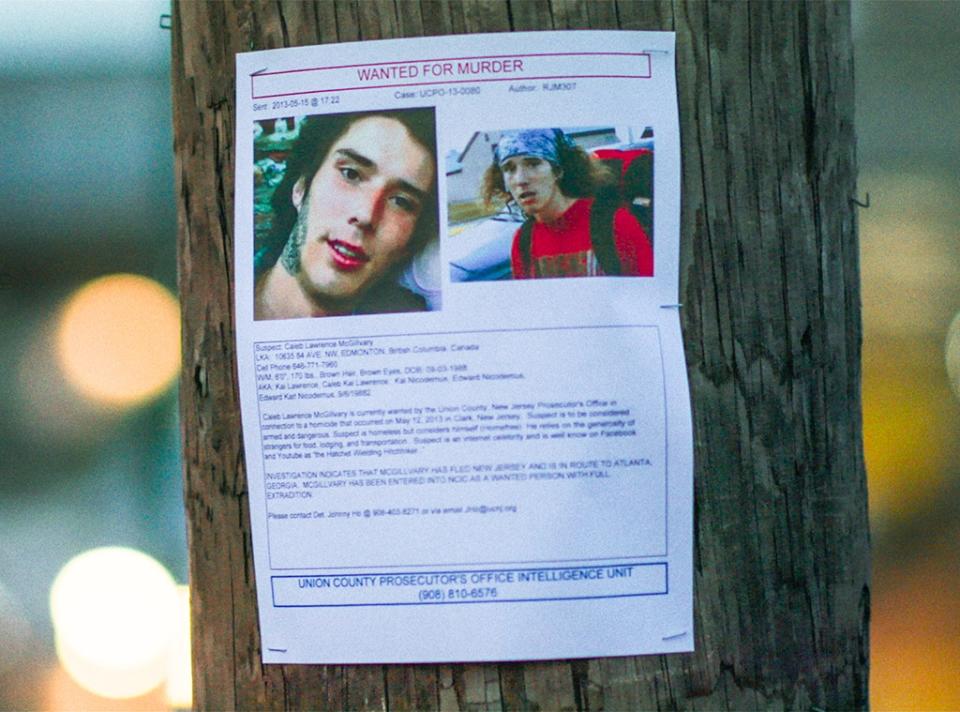
Once detectives released his name and picture, it only took until May 16 for authorities to catch up with Kai at a Greyhound station in Philadelphia. He had cut his hair, but investigators had seen photos of his new look taken by a girl he'd met on Facebook and hung out with in the interim.
"I've been advised by an attorney not to say anything to you guys," he told reporters as he was being led into a New Jersey jail in handcuffs. "I'd just like to say thank you to all the supporters."
Talking to investigators (per footage included in the documentary), Kai said that he was hanging out in Times Square in New York when Galfy approached him and offered him a meal. They ended up eating takeout and watching TV at Galfy's house, and he spent the night. When Kai woke up, he said, he felt like he'd been orally raped.
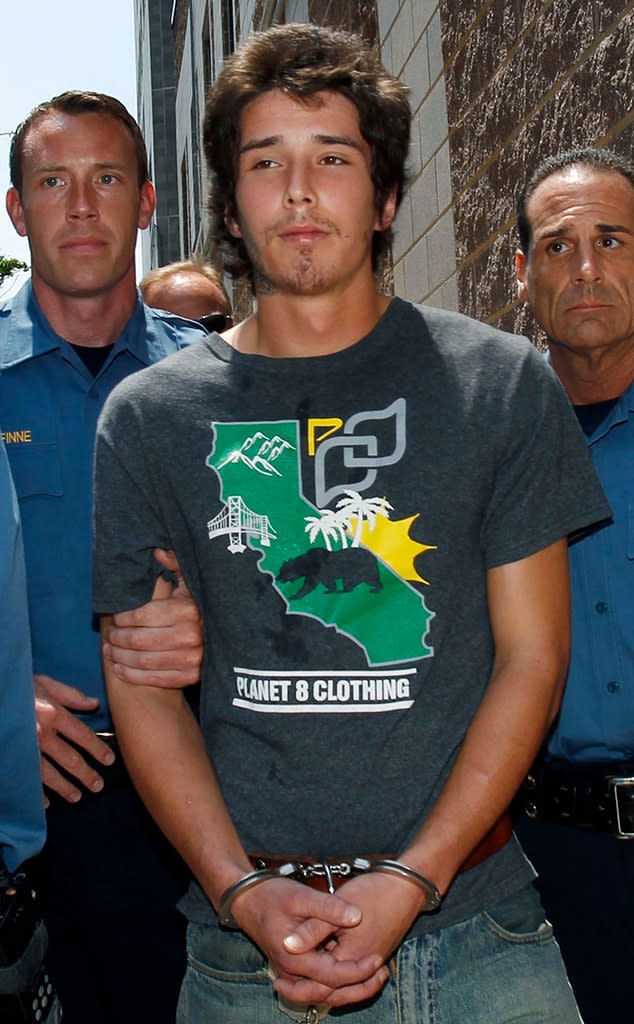
Galfy bought him a train ticket the next day, Kai said, but after his friends didn't show up to meet him in Asbury Park, he called the attorney and asked if he could go back to his place.
Galfy made burgers and they drank a few beers, Kai told detectives, and then at some point he woke up on the floor to find Galfy, in his underwear, "trying to pull down my pants."
And then he just snapped, Kai said. He noted that he didn't remember what exactly he did, but figured he must have hit Galfy in the head.
Though the Internet was still ablaze with debates over whether "Kai" did it or not, complete with a "Free Kai Caleb Lawrence" Change.org petition, McGillivary was charged with murder. He maintained he acted in self-defense.
Where is Kai, the Hatchet Wielding Hitchhiker now?
At McGillivary's trial, which didn't get underway until 2019, the Union County medical examiner testified that Galfy had blunt-force injuries to his face, head, neck, chest, and arms, including three skull fractures and four broken ribs—much of it indicative of being stomped to death.
On April 24, McGillivary was found guilty of first-degree murder and sentenced to 57 years in prison a few weeks later.
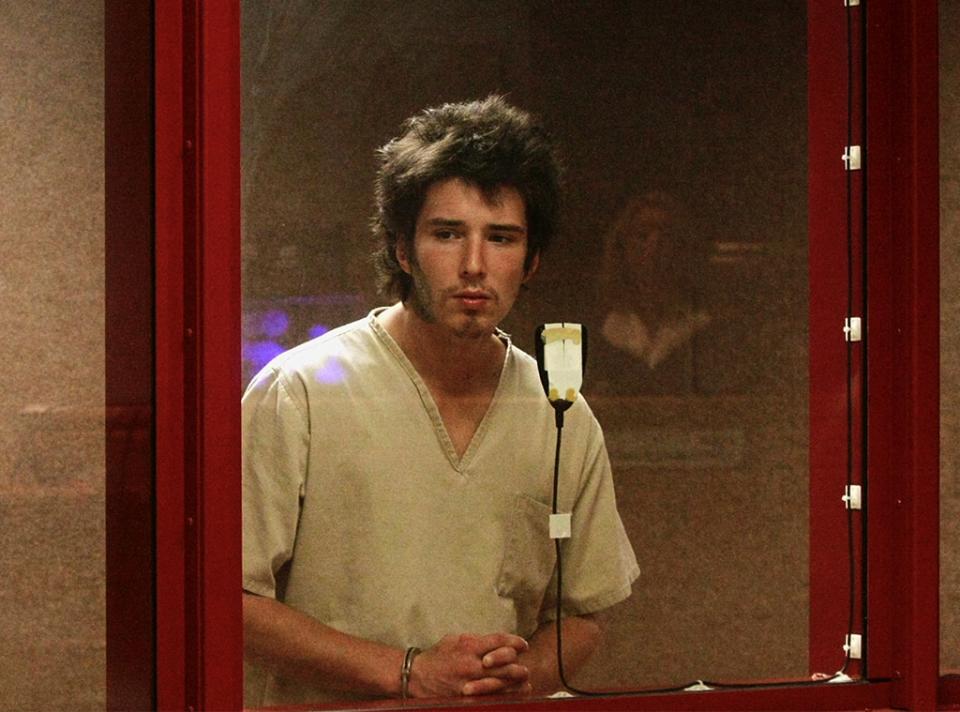
A New Jersey state appellate court denied his appeal—which argued that the evidence presented at trial didn't support a conviction, the judge made errors and he had ineffective counsel—in August 2021.
In their ruling, the appellate judges rejected his insistence that he was defending himself from being sexually assaulted, writing that Galfy was an older man, "smaller in stature than defendant, and the severity and number of his injuries supported the jury's conclusions that defendant knew his actions created substantial risk of death, or that he was aware that death was practically certain to result.
"The repeated crushing blows demonstrated defendant's intent to cause serious bodily injury."
McGillivary, who's serving his time in New Jersey State Prison, had written in a blog post a month earlier, per MyCentralJersey.com, that rejecting his appeal "would be an open (and VERY public) admission that the corruption in the Union County judiciary extends to the entire state." He vowed that, if he lost, he'd take his case all the way to the U.S. Supreme Court.
For more true crime updates on your need-to-know cases, head to Oxygen.com.

